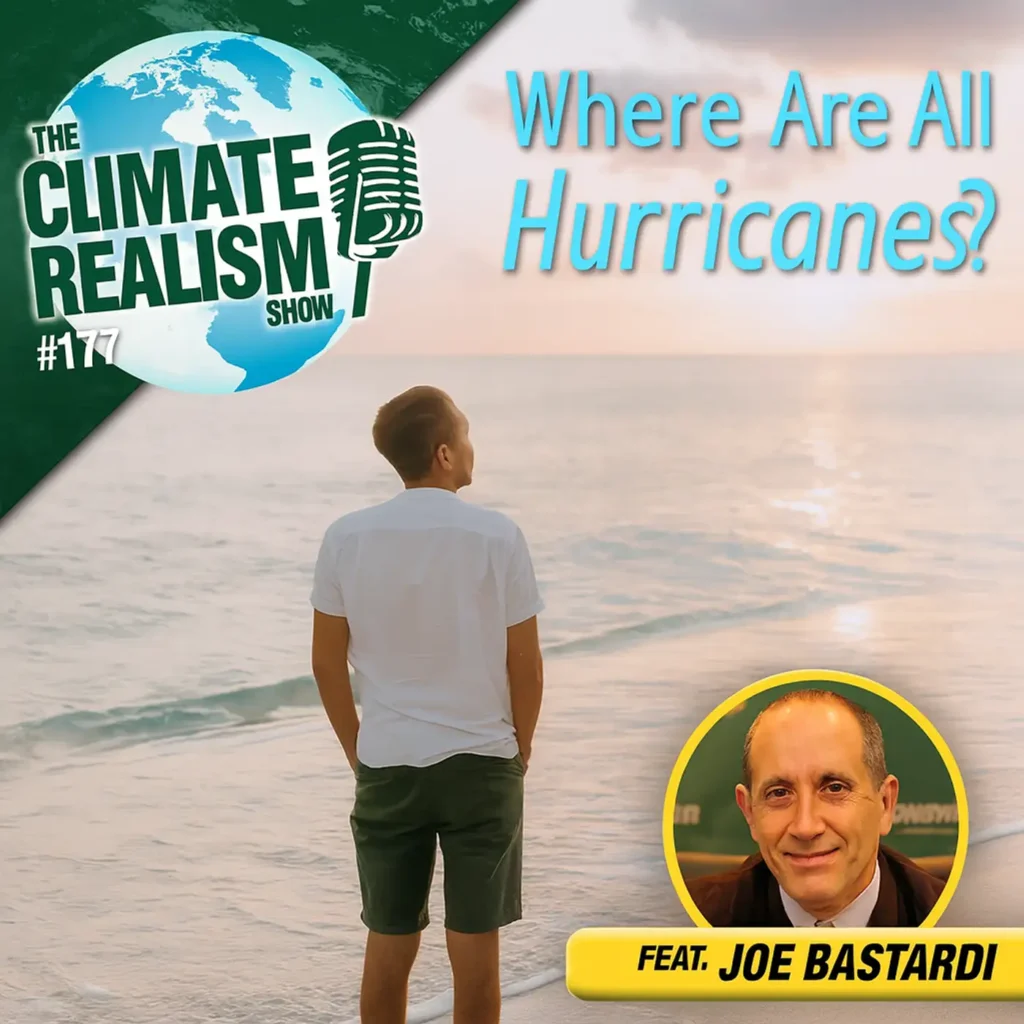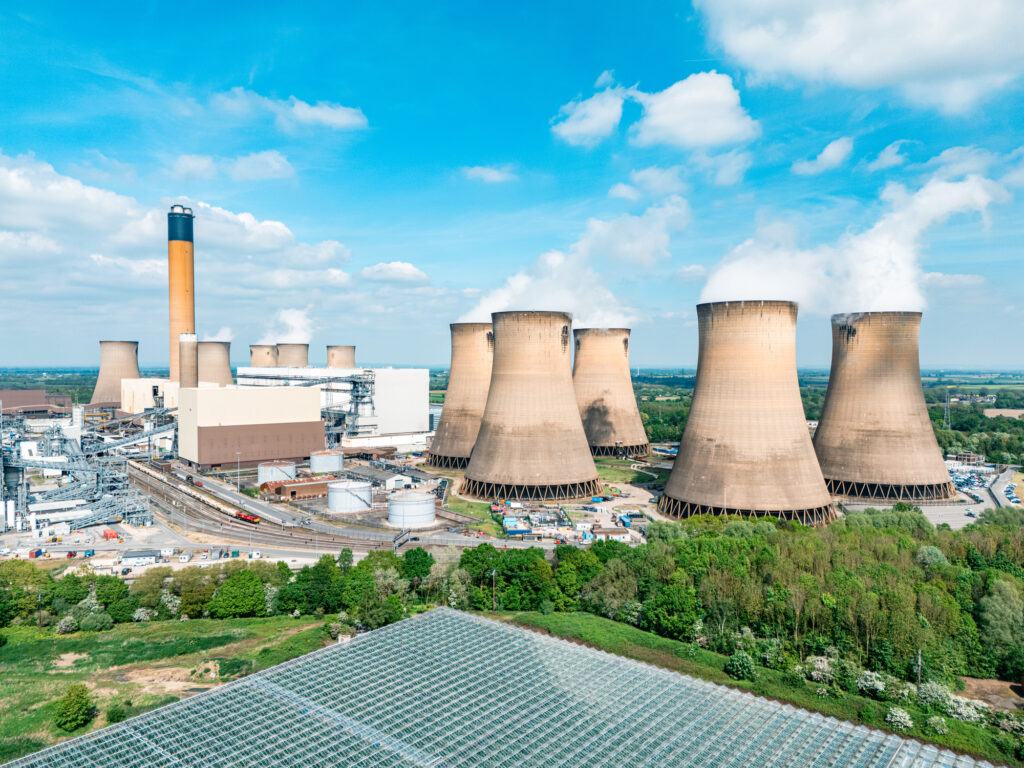The Heartland Institute was among 37 organizations and 112 individuals who signed a letter strongly urging President Donald Trump to move forward with rumored plans to form a President’s Commission on Climate Security (PCCS) with distinguished physicist Dr. William Happer, the administration’s senior director of the National Security Council (NSC) office for emerging technologies, to head it. The panel would conduct an independent review of the science that underpins official government climate reports, such as the latest National Climate Assessment.
With the media hyping fears of anthropogenic climate change for some 30 years, one might be forgiven for thinking everything that could be said or discovered about the topic had been discussed, but you would be wrong. Indeed, as John Droz writes, “America absolutely needs outside expert review of climate claims used to oppose fossil fuels [because] as incredible as it may seem, US government climate science has never been subjected to any such examination.”
It’s a common misunderstanding, due to the fawning portrayal of its work by the mainstream media, that the U.N.’s Intergovernmental Panel on Climate Change (IPCC) has objectively studied and presented the facts about climate change. IT HASN’T!
IPCC, as the name implies, is a political organization, not a scientific one. As such, IPCC was not charged with examining the causes and consequences of climate change but was instead directed from its founding to limit its enquiries into the “human causes” of change. One can’t understand a problem by studying only one aspect of it. It’s like the parable of the blind men and the elephant, if all the blind men had only been allowed to touch the trunk.
Many scientists have advanced their careers and raked in big government research grants by toeing the IPCC’s party that line humans are causing dangerous climate change and we need a government takeover of the economy, something like the Green New Deal, to fix it. Time and again, researchers and organizations have manipulated or altered data, and they have suppressed research questioning the extent to which humans are contributing to climate change, and whether said climate change is dangerous, to make the facts conform to their politically convenient theory.
In a press release announcing the release of the multiparty letter supporting Trump creating PCCS, Tim Huelskamp, Ph.D., president of The Heartland Institute, described the need for the committee.
“An unbiased, independent examination of the science of climate change by an official government body is long overdue,” said Huelskamp. “It’s only necessary because government bureaucrats have put ideology above science and excluded the wealth of data and research that undermines their narrative that human activity is the main driver of catastrophic climate change.”
As the letter states:
“In our view, an independent review of these reports is long overdue. Serious problems and shortcomings have been raised repeatedly in the past by highly-qualified scientists only to be ignored or dismissed by the federal agencies in charge of producing the reports. Among major issues that have been raised and that we hope the commission will scrutinize: the models used have assumed climate sensitivities to CO2 concentrations significantly higher than recent research warrants; the models used have predicted much more warming than has actually occurred; predictions of the negative impacts of global warming have been made based on implausible high-end emissions scenarios; the positive impacts of warming have been ignored or minimized; and surface temperature data sets have been manipulated to show more rapid warming than has actually occurred. …
“The conclusions and predictions made by these reports are the basis for proposed energy policies that could cost trillions of dollars in less than a decade and tens of trillions of dollars over several decades. Given the magnitude of the potential costs involved, we think that taking the insular processes of official, consensus science on trust, as has been the case for the past three decades, is negligent and imprudent. …
“We note that defenders of the climate consensus have already mounted a public campaign against the proposed commission. We find this opposition curious. If the defenders are confident that the science contained in official reports is robust, then they should welcome a review that would finally put to rest the doubts that have been raised.”
Happer is the perfect person to shape PCCS and direct its work. Before joining NSC, Happer had a distinguished career in academia and in government service. He was the Cyrus Fogg Brackett professor of physics, emeritus, at Princeton University, served as the director of the Office of Energy Research at the U.S. Department of Energy, and is a fellow the American Association for the Advancement of Science and a member of the National Academy of Sciences.
He is also a longtime friend of The Heartland Institute, having spoken at two of Heartland’s 12 International Conferences on Climate Change and having received the Frederick Seitz Memorial Award, created to recognize scholars who’ve had the courage to “swim against the tide” of conventional thinking on climate change despite the financial and professional disincentives.
We at Heartland recommend as PCCS examines and debates the causes of current climate change and its purported impacts on national security, agriculture, sea level, and extreme weather, it avail itself of the multivolume, thoroughly researched and peer-reviewed studies published by the Nongovernmental International Panel on Climate Change, in the Climate Change Reconsidered Series. These documents can serve as the basis for further debate or to supplement the other research materials PCCS will undoubtedly review.
In addition, as climate change’s impact on national security promises to be a particular focus of PCCS, The Heartland Institute released a new Policy Brief titled “Global Warming Energy Restrictions Threaten U.S. National Security,” disposing of claims human-caused climate change poses a threat to national security, showing instead proposed restrictions on the use of fossil fuels pose the real danger to U.S. national security and continued economic prosperity.
In the end, from the perspective of climate alarmists opposed to the PCCS, Trump’s big sin in forming PCCS is to question the claim climate science is settled, and Happer’s big sins are to defend the need for high-quality data and to point out a modestly warmer world and increased atmospheric carbon dioxide will bring benefits as well as costs. All the panic, hyperbolic gnashing of teeth, and name-calling accompanying speculation concerning PSSC in recent weeks comes down to this.
This is certainly not an anti-science conspiracy. Neither good science nor sound policy can be advanced without an unbiased examination and debate of the facts, the cornerstone of scientific discovery.
- H. Sterling Burnett
SOURCES: Competitive Enterprise Institute et al.; Epoch Times; The Heartland Institute; The Heartland Institute; Nongovernmental International Panel on Climate Change
IN THIS ISSUE …
Unions break with Democrats over GND … Frac sand mining isn’t causing air pollution
UNIONS BREAK WITH DEMOCRATS OVER GND
Trade unions, often considered a reliable constituency for Democrats, are speaking out against the Green New Deal (GND), a plan to remake America’s economy to eliminate the use of fossil fuels, embraced by a number of Democrats who’ve declared their candidacy for the party’s nomination for the 2020 presidential election.
Among its plethora of liberal policy proposals, GND aims at ending fossil fuel use for electric power and transportation, and it calls for the upgrading or replacement of all existing buildings in the United States by 2030.
A letter sent to Rep. Alexandria Ocasio-Cortez (D-NY) and Sen. Ed Markey (D-MA), the cosponsors of GND, from AFL-CIO energy committee cochairs Cecil Roberts, president of the United Mine Workers of America, and Lonnie Stephenson, president of the International Brotherhood of Electrical Workers, speaking on behalf of eight other unions, including the United Steel Workers, the Utility Workers of America, and the North American Building Trades Union, is highly critical of GND.
“[The GND] is not rooted in an engineering based approach and makes promises that are not achievable or realistic,” said the letter. “We will not accept proposals that could cause immediate harm to millions of our members and their families. We will not stand by and allow threats to our members’ jobs and their families’ standards of living go unanswered.”
The letter was made public in a March 11 tweet by Sen. John Barrasso (R-WY), who wrote, “I agree with the AFL-CIO.”
SOURCE: Washington Examiner
FRAC SAND MINING ISN’T CAUSING AIR POLLUTION
Fracking is one among myriad banes of the existence of alarmist climate activists and anti-fossil-fuel forces. They level misguided attacks to halt fracking and natural gas development and use, both directly by trying to halt existing fracking operations and preventing new fracking wells from being developed, and indirectly by preventing pipelines from being constructed to carry natural gas from wells to market, or by preventing the mining of the sand used to prop open fractures thousands of feet below the ground to allow the natural gas to flow freely and be captured by wells.
Because the connection between frac sand mining and climate change is so indirect, those opposed to frac sand operations have attacked by claiming it causes dangerous local air pollution. The Heartland Institute disposed of this falsehood with an extensive study of the issue in 2017, by Isaac Orr and Mark Krumenacher. Orr and Krumenacher surveyed the literature and found the best available scientific data collected by state agencies and nationally respected air monitoring scientists using EPA-certified equipment and sampling methodologies, show industrial sand facilities do not contribute hazardous levels of air pollutants, neither respirable crystalline silica nor particulate matter (PM), and therefore do not pose a threat to human health.
By contrast, opponents of frac sand mining cited work of Dr. Crispin Pierce, from the University of Wisconsin-Eau Claire’s Environmental Public Health program, and his students to claim frac sand mining was causing dangerous levels of air pollution nearby. As Heartland’s study showed, Pierce’s research was seriously flawed, based on a poor research methodology using uncertified sampling equipment, and as a result Orr and Krumenacher concluded Pierce’s study “is so poorly designed it has no value for furthering our understanding of the impact of frac sand facilities on air quality. In fact, it reflects poorly on the university.”
Jump forward two years, and Pierce and his students have produced a new study they claim was needed to fill data gaps at some sites around Chippewa Falls, Wisconsin. I don’t know whether Pierce improved his data collection methodology or equipment, but I do know his work came to a starkly different conclusion than before: Pierce’s students found no evidence frac sand mining was causing a dangerous increase in fine particulate matter, a pollutant produced by truck traffic, farming operations, and combustion.
At 7.7 micrograms per cubic meter in 50 24-hour samples taken over two years, air quality measurements taken by Pierce’s students near a frac sand mine near Bloomer, Wisconsin found particulate matter measurements were modestly elevated when compared to 4.33 microgram per cubic meter background levels the Department of Natural Resources monitor at the site is calibrated to. This is well below the 12 micrograms per cubic meter standard established by the U.S. Environmental Protection Agency as safe. The sampling could not confirm whether the modestly elevated particulate matter levels were due to frac sand mining or to nearby truck traffic and agricultural activities such as plowing fields and harvesting crops.
The only samples in the area modestly violating EPA’s standards for very short periods, although also not considered dangerous, were not associated with frac sand mining but instead were measured at two processing and train-loading facilities.
The Leader-Telegram reports Pierce admitted in public comments his most recent findings were “not alarming,” and quoted him saying “We’re not seeing very, very dangerous levels [of particulates].”
SOURCES: Eau Claire Leader-Telegram; Townhall; The Heartland Institute



